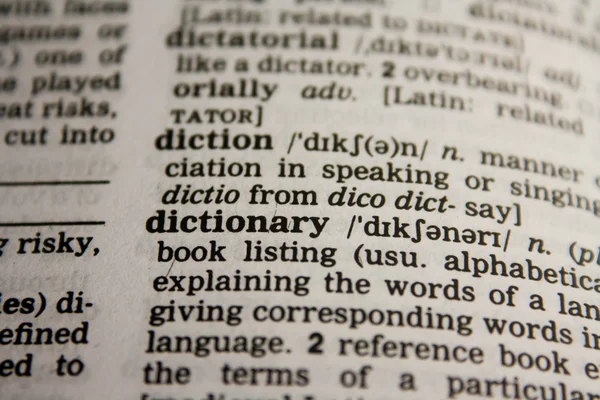
Dictionaries: types and functions
If you are going to study a foreign language, you already know that from the beginning it is essential that you get a good dictionary. In fact, it is a tool that is highly advisable to also use in the native language, since it helps us to constantly acquire new vocabulary, which encourages brain activity and our communication possibilities. But did you know that there are different types of dictionaries?
Possibly you were not very clear about it; However, it is essential that you take it into account when choosing yours, since that can mean that beyond the traditional dictionary you are missing other forms of learning that can help you a lot. Today we want to talk to you about the types of dictionaries that you can find and use, as well as the functions that each of them perform in the grouping of knowledge.
The most important types of dictionaries
- Usage dictionaries:
They are the fundamentals and the first that we begin to use at an early age, mainly in schools. It is the dictionary in which we can find the words we need to communicate and their meaning in our language. This type of dictionary allows us to solve doubts regarding words that we do not know, it allows us to access different meanings that perhaps escape us. Remember that these dictionaries are usually adapted to different ages. It is easy to find dictionaries of use for children and within this group, for children of very different ages. This type of dictionary is found in all languages. If you study a foreign language, it will not be convenient to have a dictionary of use in the new language at hand until you have a high knowledge and command of it.
- Visual dictionaries:
They are those that have the same function as the previous ones. They collect a series of fundamental words with their meaning, but they are quite practical, since they are accompanied by photos with which users can clearly clarify the meaning (s) of the different words. They are essential for foreign languages, especially for children, since it is much more enjoyable and easy for them to memorize new words and their meaning, but they are recommended for any age. If it is easier for you to learn with a visual dictionary, don't think twice and get yours. Look for one of quality and adapted to your needs.
- Bilingual dictionaries:
They are the ones we use when we study a foreign language. It is a dictionary that collects words in the two reference languages, so that you know how the same word is said in both languages. In our case, the language combination will always be with Spanish. This type of dictionary is also adapted to the user's level. In any case, if you plan to study up to the higher levels of a foreign language, get one that allows you to use it throughout the entire course of your study.
- The synonyms dictionaries:
Although it may sound strange beforehand, this type of dictionary is widely used, especially by language professionals (proofreaders, translators, writers, students, teachers ...). It is a dictionary that contains a list of words along with others with the same meaning. This allows you to find groups of very different words, but that mean the same thing.
- Dictionaries of antonyms:
They are exactly the same as the previous ones, but what they collect are lists of words together with others with completely opposite meanings, words that mean just the opposite. Sometimes the two types of dictionaries, synonyms and antonyms, can be found in the same volume.
- The normative dictionaries:
In this case, it is the dictionary that we could consider as "official", since it collects the words that language academies accept due to their widespread use among speakers. In our case it is the Dictionary of the RAE , in which we can find all the words that are considered within the norm and that the Academy considers necessary to incorporate them into its list of words in use.
- Etymological dictionaries:
They are those that collect the origin of the different words. As you can imagine, it is an excellent and important material, as well as interesting, that allows its users to expand their knowledge of words. They are a great source of knowledge. Very accepted and needed among philologists especially, but also among a wide range of the population with a love of words and with a curiosity for languages.
- The encyclopedic dictionaries:
Although currently they have little use since they have been replaced by the Internet, this type of dictionary has always been the source of consultations for all students . It is a very practical type of dictionary, since it collects knowledge either by historical stages, study disciplines ..., with extended and detailed information. They are always accompanied by images, graphics, diagrams and all the visual elements that make the study more illustrated and easy, as well as enjoyable. It is very easy to find them in the homes of any family, since it has been the support of all of them to solve doubts before the appearance of the Internet. And although now the Web contains all the information we need and more, it is highly recommended to have encyclopedic dictionaries at hand.
- Technical dictionaries:
They collect words typical of a discipline. That is, they are dictionaries with a specialized vocabulary, for all those who work with a specific sector can easily find all the terms that can be used for their work. Very appropriate for those who are investigating as well.